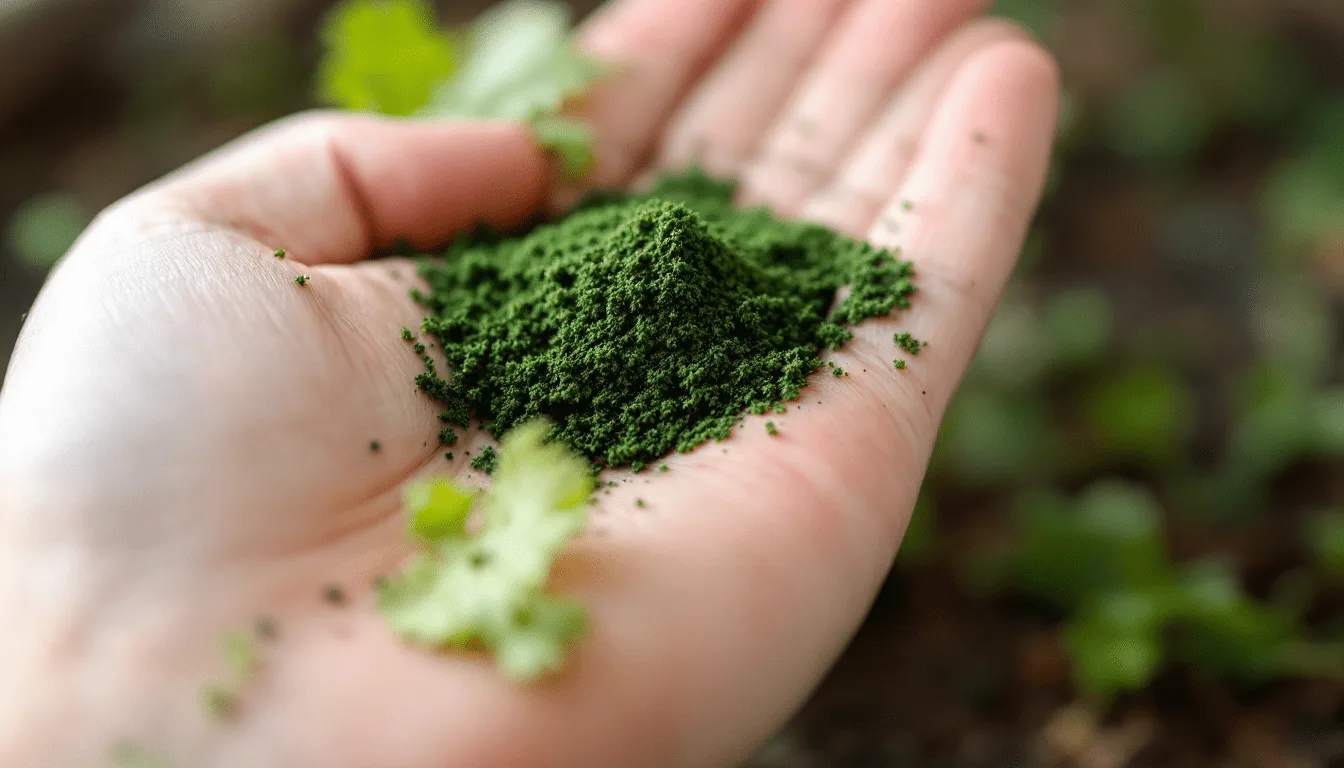Spirulina is a type of blue-green algae that has garnered significant attention in recent years for its nutritional benefits and potential applications in healthy eating. Scientifically classified under the genus Arthrospira, this remarkable organism grows in warm, alkaline waters and has been utilized as a food source for centuries. Historical records indicate that spirulina was consumed by ancient civilizations, such as the Aztecs and the Kanembu people of Chad, who harvested it from Lake Chad. Today, spirulina is widely recognized as a superfood, often available in powder, tablet, or capsule form.
This nutrient-dense algae is celebrated for its impressive composition, which includes high levels of proteins, essential vitamins, and minerals. Spirulina comprises approximately 60-70% protein, making it a complete protein source that contains all the essential amino acids required for human health. It is also rich in various vitamins such as B-complex vitamins, including B1 (thiamine), B2 (riboflavin), B3 (niacin), as well as vitamin E and beta-carotene. Additionally, she is a valuable source of vital minerals like iron, calcium, magnesium, and potassium. These components collectively contribute to the overall wellness and nutritional balance of those who incorporate spirulina into their diets.
The increasing popularity of this nutrient coincides with the growing movement towards healthier eating habits and a focus on plant-based nutrition. As more individuals seek sustainable and nutrient-rich food options, spirulina stands out as a viable candidate. In the following sections, we will delve deeper into the myriad benefits of spirulina, elucidating its potential roles in health and wellness while exploring practical ways to include this remarkable algae in modern dietary practices.
Quick Insights On Spirulina:
- Nutritional Powerhouse of Spirulina: Spirulina is a superfood rich in complete protein, essential vitamins, and minerals, making it an excellent dietary supplement for supporting overall health and wellness.
- Safety Tips and Precautions: While generally safe, it’s important to source high-quality spirulina to avoid contamination, and consult a healthcare professional if you have allergies or are on medication.
- Health Benefits of Spirulina: This blue-green algae boosts the immune system, promotes gut health, reduces inflammation, and supports weight management, contributing to a balanced and healthy lifestyle.
- Enhancing Energy and Stamina: Packed with B vitamins and antioxidants, spirulina improves energy levels, endurance, and aids muscle recovery, making it popular among athletes and fitness enthusiasts.
- How to Incorporate Spirulina into Your Diet: Spirulina can be added to smoothies, meals, or taken as tablets, with beginner doses starting at 1-3 grams daily, gradually increasing as your body adjusts.
Nutritional Profile
Spirulina is often heralded as a superfood due to its remarkable nutritional profile. This blue-green algae is an excellent source of protein, consisting of approximately 60-70% of its dry weight. This makes it an exceptional option for individuals seeking plant-based protein sources, particularly for those engaged in healthy eating practices. Furthermore, spirulina contains all essential amino acids, which are crucial for various bodily functions, including muscle repair and hormonal balance.
In addition to its protein content, spirulina is rich in an array of vitamins. It is packed with B vitamins, including B1 (thiamine), B2 (riboflavin), B3 (niacin), and B12 (cobalamin), which are essential for energy production and cognitive function. Moreover, it boasts a significant amount of vitamin K, playing a critical role in bone health and proper blood clotting. This combination of vitamins complements a balanced diet and supports overall well-being.
Spirulina is also noted for its mineral content, containing important micronutrients like iron and magnesium. Iron, a vital component in the formation of hemoglobin, helps in oxygen transport throughout the body and can be particularly beneficial for individuals who may be at risk of deficiency. Magnesium, on the other hand, is essential for numerous biochemical reactions, including muscle and nerve function, as well as energy production.
Moreover, spirulina possesses antioxidant properties, primarily due to the presence of compounds like phycocyanin, which not only gives spirulina its vibrant color but also helps in combating oxidative stress. This unique compound has been shown to have anti-inflammatory effects, further solidifying spirulina’s reputation as a powerhouse in the realm of healthy eating. Collectively, these attributes contribute to spirulina’s standing as a nutrient-dense food choice, ideal for health-conscious individuals.
Unlock Your Potential with YOLO DNA Health!
Health Benefits
Spirulina, a blue-green algae, has gained recognition as a nutrient-dense superfood and is often incorporated into various healthy eating regimens. Its health benefits are supported by an array of scientific research, highlighting its potential to enhance overall well-being. One notable benefit is its capacity to boost immune function. Studies indicate that spirulina possesses antioxidants and vitamins, such as vitamin E and beta-carotene, which can help strengthen the body’s defenses against infections, making it an excellent addition for those seeking to improve immunity.
Furthermore, this nutrient contributes significantly to gut health. It is rich in dietary fiber, which supports healthy digestion and promotes a balanced gut microbiome. Several studies suggest that the inclusion of spirulina in a daily diet can improve bowel regularity and may even influence the growth of beneficial gut bacteria, thereby enhancing digestive health.
Another essential attribute of spirulina is its anti-inflammatory properties. Chronic inflammation is linked to numerous health issues, including heart disease and arthritis. Research has shown that spirulina may reduce markers of inflammation, thus potentially lowering the risk of developing these conditions. By incorporating spirulina into one’s diet, individuals may benefit from its natural anti-inflammatory capacities, which can help maintain better overall health.
Weight management is yet another area where spirulina shows promise. High in protein and low in calories, spirulina can be an advantageous component of a weight-loss plan. Studies suggest that adding spirulina to meals may promote feelings of fullness, thereby aiding in appetite control and reducing overall caloric intake. This aligns well with principles of healthy eating, enabling individuals to achieve their weight management goals more efficiently.
In conclusion, the myriad health benefits of spirulina, from supporting immune function to enhancing gut health, and its anti-inflammatory and weight management properties, underscore its value as a nutritional supplement within a balanced diet.
Eat to Beat Disease by William W Li, MD
Eat to Beat Disease by William W. Li, MD, is a revolutionary guide offering insights into how food can enhance your health and vitality. The book delves deep into the science of nutrition, presenting evidence that everyday foods can combat diseases.
How Spirulina Boosts Energy and Stamina
This blue-green algae is increasingly gaining recognition in the health and fitness communities for its potential to enhance energy and stamina. This nutrient-dense superfood is packed with essential vitamins, minerals, and proteins, making it an attractive supplement for athletes and fitness enthusiasts alike. One of the primary reasons spirulina is favored in these circles is its impressive nutritional profile, which includes high levels of B vitamins, particularly B1 (thiamine), B2 (riboflavin), and B3 (niacin), all essential for energy metabolism.
Research indicates that this nutrient supplementation can enhance endurance during prolonged physical activities. A study published in the Journal of Applied Physiology found that athletes who consumed spirulina experienced improved exercise performance, characterized by increased endurance and reduced fatigue. This can be attributed to the enhanced oxygen uptake and improved cellular functions that she promotes, facilitating better performance during physical exertion.
Moreover, spirulina also plays a significant role in the recovery phase after exercise. After intense workouts, the body often needs to restore its nutrient levels and repair muscular damage. The antioxidants found in spirulina, such as phycocyanin, help in reducing oxidative stress, which can lead to quicker recovery times. By incorporating this nutrient into their diets, individuals may find that they feel less sore and experience a faster return to their regular training routines.
Additionally, as she is a source of protein, it aids in muscle repair and growth. This is particularly beneficial for athletes looking to increase their muscle mass or maintain their strength during demanding training periods. Overall, she is a powerful ally for those pursuing healthy eating, fitness, and improved athletic performance.
Meditating on Your Daily Dosage: How to Take Spirulina
Incorporating spirulina into your daily routine can enhance your journey towards healthy eating. This superfood is available in various forms, including powder, tablets, and flakes, allowing you to choose the one that best fits your lifestyle. For those new to spirulina, it is advisable to start with a lower dosage. Typically, a daily intake of 1 to 3 grams is recommended for beginners, gradually increasing to 5 to 10 grams as your body adjusts.
Spirulina powder is a versatile option that can be easily mixed into smoothies, shakes, or juices. A delicious way to begin your day would be to blend a teaspoon of spirulina powder with your favorite fruits and leafy greens, providing an energizing start. Additionally, she can be added to soups or broths, subtly enhancing the nutritional profile of your meals. For a more convenient option, spirulina tablets or capsules are available, offering an easy method to reap the benefits without altering your food preferences.
Moreover, you can incorporate spirulina into health bars or energy bites, which can serve as an excellent snack or post-workout fuel. Simply mix the powdered form with nuts, seeds, and a natural sweetener, then mold into bite-sized bars for on-the-go nourishment. It is essential, however, to listen to your body when beginning to consume spirulina. Some individuals may experience digestive changes, so starting slowly and evaluating how you feel will ensure the best incorporation into your healthy eating habits.
Embracing spirulina can provide a multitude of health benefits. With careful attention to dosage and a mindful approach to how you consume it, you can seamlessly integrate this nutrient-dense superfood into your daily regimen.
Safety and Side Effects
This blue-green algae, praised for its high nutritional value and health benefits, is generally considered safe for the majority of individuals when consumed appropriately. However, it is important to remain vigilant regarding potential side effects and safety concerns to ensure a positive experience with this superfood. While most people tolerate spirulina well, some may experience allergic reactions, digestive discomfort, or other adverse effects.
Allergies can manifest in individuals who are sensitive to blue-green algae. Symptoms may include rashes, swelling, and difficulty breathing. It is advisable for individuals with pre-existing allergies to pollen or other allergens to exercise caution. Moreover, digestive issues such as gas, bloating, or diarrhea can occur in sensitive individuals, particularly if spirulina is introduced into the diet too rapidly. It is beneficial to start with smaller doses and gradually increase intake to observe how one’s body reacts.
Furthermore, she may interact with certain medications, particularly immunosuppressants, anticoagulants, and other drugs that affect the immune system or blood clotting. Therefore, if you are taking medication, it is recommended to consult with a healthcare professional before initiating spirulina supplementation.
It is crucial to ensure that spirulina is sourced from reputable suppliers to avoid contamination with heavy metals or harmful bacteria. Poor-quality spirulina could pose more significant health risks than benefits, making it essential to purchase spirulina that has been tested and certified for purity. The consumption of spirulina as part of a healthy eating plan can be greatly beneficial, but should be approached with care to maximize its advantages while minimizing potential risks.
Vegan Health, Nutrition and Lifestyle Course
Are you ready to revolutionize your approach to health and nutrition? The New Skills Academy’s Vegan Health, Nutrition, and Lifestyle Course is designed just for you! Dive into the world of plant-based living and learn to make conscious food choices that benefit your body and the planet.
Comparison with Other Nutritional Supplements
Spirulina has gained significant attention in recent years for its impressive nutritional profile and health benefits. When compared to other nutritional supplements, such as chlorella and wheatgrass, spirulina exhibits distinct advantages. While chlorella also belongs to the algae family, it is known for its potential detoxifying properties, largely attributed to its ability to bind heavy metals. In contrast, spirulina boasts a higher protein content, making it an excellent source of essential amino acids, which support muscle repair and growth.
Wheatgrass, derived from the young shoots of the wheat plant, is another popular supplement in the healthy eating community. It is rich in vitamins A, C, and E, along with various minerals. However, spirulina surpasses wheatgrass in terms of vitamin B12 content, a vital nutrient often lacking in plant-based diets. This makes spirulina particularly appealing for vegetarians and vegans seeking to fulfill their nutritional needs.
The nutrient profiles of these three supplements also highlight their unique benefits. Spirulina is rich in iron, which is crucial for oxygen transport in the body, while chlorella provides a higher concentration of chlorophyll, known for its potential detoxification abilities. Furthermore, wheatgrass is recognized for its high antioxidant levels, which combat oxidative stress. Each of these supplements demonstrates the importance of nutritional variety in a healthy eating regimen.
Overall, spirulina stands out in the health supplement market due to its exceptional nutrient density, versatility, and potential to enhance overall well-being. When considering supplementation, individuals may benefit from understanding how each option aligns with their specific health goals, but spirulina’s unique combination of nutrients often positions it as a top choice.
Unlock Your Potential with YOLO DNA Health!
Incorporating Spirulina into Your Lifestyle
Integrating spirulina into your daily routine can be both simple and enjoyable, allowing families, vegans, and busy individuals to reap its benefits effortlessly.
For families, introducing spirulina can be a pleasant experience. One effective way to incorporate it is by adding spirulina powder to smoothies. This not only masks the taste of the algae but also delivers a nutrient-dense boost that children can enjoy. Moreover, incorporating this nutrient into homemade energy bars or baked goods offers a unique twist, turning everyday snacks into superfood treats. By livening up family meals with spirulina-infused dressings or dips, parents can ensure their children are benefiting from this potent health supplement without any hassle.
In the context of a vegan diet, spirulina serves as a valuable source of protein and essential nutrients that are often harder to obtain from plant sources alone. Vegans can easily incorporate spirulina into breakfast bowls, mixed into oatmeal or yogurt, or stirred into pancake batter. Additionally, consider creating vibrant spirulina salad dressings or sauces to enrich dishes with their nutritional density, making healthy eating not only practical but also flavorful.
For those leading busy lives, spirulina can be a valuable ally in maintaining health and vitality. Easy-to-carry spirulina tablets or capsules are ideal for individuals on the go, ensuring that they can receive their daily dose, regardless of time constraints. Alternatively, preparing spirulina-infused meal prep options, such as overnight oats or smoothie packs, allows busy individuals to enjoy nutritious meals in minutes. By making spirulina a staple in your daily habits, you can enhance your overall well-being and ensure a balanced diet even amidst a hectic schedule.
Go2sleep 3: The Ultimate Sleep Companion
The Go2Sleep 3 revolutionary home sleep monitor is designed to monitor and improve your sleep quality with its comfortable, widened ring holder and advanced algorithms for precise monitoring of blood oxygen, heart rate, and blood glucose.
Embracing Spirulina for a Healthy Future
Spirulina has emerged as a superfood that offers a wide array of benefits, making it a valuable addition to a balanced diet. Rich in essential nutrients, this blue-green algae supports numerous aspects of health, including boosting energy levels, reinforcing the immune system, and even promoting healthy skin. Its significant protein content, coupled with a variety of vitamins and minerals, positions spirulina as an excellent alternative protein source, especially for those following a vegetarian or vegan lifestyle.
Integrating this nutrient into your daily routine can be a seamless way to enhance your overall nutrition. Whether consumed in powdered form, as a tablet, or incorporated into smoothies and other recipes, this versatile supplement can accommodate various eating habits. However, consumers must be mindful of sourcing and choosing high-quality spirulina products to optimize health outcomes.
Moreover, while spirulina is lauded for its numerous health benefits, it is important to approach its incorporation into your diet with an understanding of individual needs and circumstances. Engaging with healthcare professionals can provide personalized insights and guidance, ensuring that any changes align with specific health goals or dietary restrictions. As you embark on your health journey, consider the role of spirulina as a supportive element in pursuing a lifestyle rooted in healthy eating.
As we navigate a world increasingly focused on nutrition and well-being, embracing the potential of spirulina could pave the way for a healthier future. For those looking to enhance their diets, exploring the incorporation of this superfood into daily meals is worth contemplating.
Frequently Asked Questions:
Are there any safety concerns or side effects associated with spirulina?
While generally safe for most people, potential side effects include allergic reactions, digestive discomfort, or interactions with certain medications. It is crucial to source spirulina from reputable suppliers to avoid contamination, and consult a healthcare professional if you have allergies or are on medication.
What is the recommended way to consume spirulina daily?
Spirulina can be consumed in powder, tablet, or capsule form. Beginners should start with 1 to 3 grams daily and gradually increase up to 5 to 10 grams. It can be added to smoothies, drinks, soups, or incorporated into recipes for convenience.
In what ways can athletes benefit from incorporating spirulina into their diets?
Athletes can benefit from spirulina by experiencing improved endurance and reduced fatigue during prolonged exercise, faster recovery times due to its antioxidant content, and supporting muscle repair and growth with its high protein levels, thereby enhancing athletic performance.
How does spirulina support overall health and wellness?
Spirulina supports health by boosting immune function, improving gut health through dietary fiber, reducing inflammation with its anti-inflammatory properties, and aiding weight management due to its high protein and low-calorie content. These benefits help promote overall well-being.
What makes spirulina a highly nutritious superfood?
Spirulina is renowned as a superfood due to its remarkable nutritional profile, including high levels of complete protein, essential vitamins such as B-complex vitamins and vitamin E, and vital minerals like iron and magnesium. Its antioxidant compounds, particularly phycocyanin, also contribute to its health benefits.
Body, Mind, And Soul For A Fulfilled Life!






